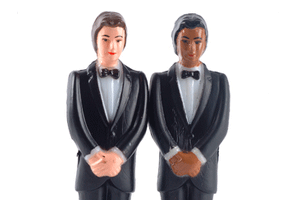 NPR says that there is an estimated 28,000 bi-national gay couples living in the United States who, prior to June, did not have access to the same immigration rights as their heterosexual counterparts. The decision by the Supreme Court to overturn the federal Defense of Marriage Act however, means that homosexual couples do now have those same rights.
NPR says that there is an estimated 28,000 bi-national gay couples living in the United States who, prior to June, did not have access to the same immigration rights as their heterosexual counterparts. The decision by the Supreme Court to overturn the federal Defense of Marriage Act however, means that homosexual couples do now have those same rights.
The Defense of Marriage Act was a law enacted 17 years ago, back in 1996, which legally defined marriage as only being between a man and a woman. The Supreme Court ruled that the law violated the equal protection guarantees of the Fifth Amendment and was thus unconstitutional, giving gay marriages protections and legal benefits near to those of straight marriages. Now gay married couples are allowed to claim joint ownership of assets, are able to petition for their spouse to receive legal immigration status and have hospital visitation rights.
However, same-sex immigration rights continue to be a tricky subject. Because homosexual marriage is not legal on a federal level, couples have to be wed in states that give recognition to that union, although they can still sponsor their spouse for US citizenship even if they do not.
Tennessee’s NBC affiliate WRCB says that a gay couple who lived overseas traveled as much as 2,000 miles so that they could be married in New York. Hugo Rendon from Mexico and Richard Hurtado from Texas were living overseas until the Supreme Court decision, at which point Hurtado could sponsor his overseas husband for citizenship.
